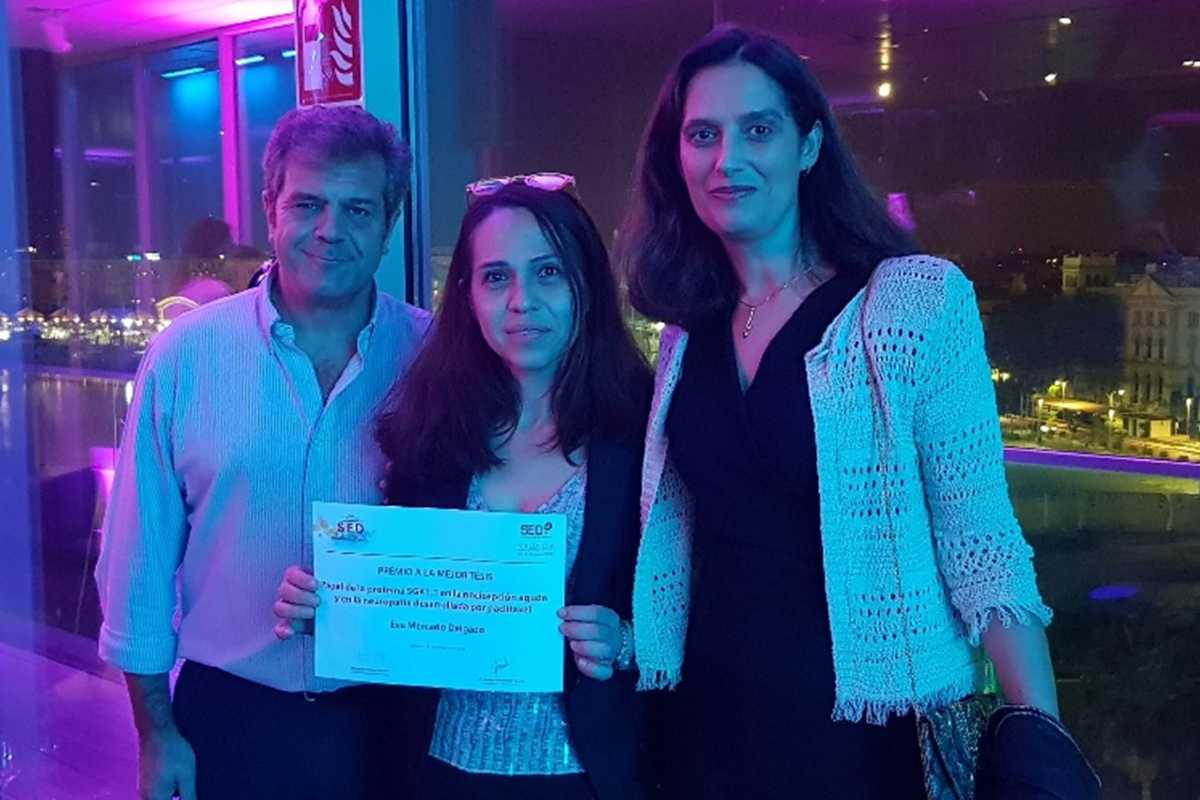Nora Fernandez Fernandez
Dr. Eva Mercado Delgado, a student who graduated from the Official University Master's Degree in Basic and Clinical Aspects of Pain at the URJC, has been awarded one of the prizes for the "Best Thesis on Pain". The event took place at the XVIII Congress of the Spanish Pain Society, the body that awarded the prize, held in Valencia from October 26 to 29.
Specifically, the doctoral thesis is entitled the following: 'Role of the SGK1.1 protein in acute nociception and neuropathy developed by paclitaxel'. When asked about its content, Mercado explains in a simpler way what his work has consisted of: "We have developed a study to see how, after subjecting the sample subjects (in this case mice) to overexposure to a specific protein, it changes the level of neuropathic pain in them.”
Contextualizing, Mercado comments that this research arose from the "brilliant idea" of his thesis tutor, Carlos Goicoechea, "who noticed a new model from the University of La Laguna that proposed precisely this overexposure to the protein to see how the mice reacted ”.
In general terms, Eva Mercado, together with her tutors Carlos Goicoechea and Eva Mª Sánchez Robles, has put this methodology developed at the University of Tenerife into practice in real samples; she has taken the model to a laboratory with mice.
As such, Mercado acknowledges that the results have been "remarkably good and that, after increasing the levels of this protein in part of the sample, we have been able to see the differences it produces." Thus, in the first part of the thesis, the mice to which this protein was introduced in greater quantities were characterized and defined. In a second phase, the mice that had received this overexposure were compared with those that had not, seeing the response to this neuropathic pain. In the last stage of the work, it was concluded that those mice with this protein did not experience as much neuropathic pain and, furthermore, did not develop as much sensitivity to cold. An important dimorphism between males and females was also observed in this part.
"The most important thing about the thesis is that we have raised many questions that we have left unresolved, with a view to new research in this neuropathic field," says Mercado. The Doctor also wanted to emphasize that "there is still a long way to go until this research can be extrapolated to the human plane and lead to new treatments for neuropathic pain, which is one of the most suffered and least treated."
Finally, Dr. Mercado wanted to “thank the entire team for the time and effort they put into it. I came from the field of clinical medicine and this has been a challenge that I have been able to face thanks to the work and help of everyone. It is a pride for me and for the whole team to have received this award and to see that the thesis has come to a very good conclusion”.




